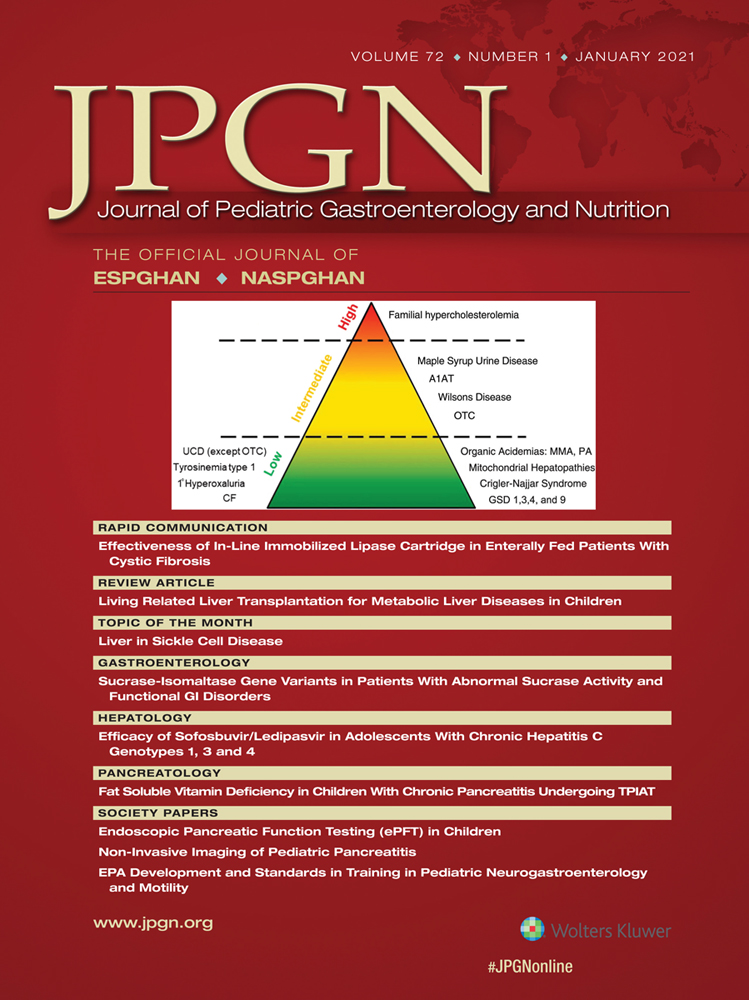Development and Validation of a Self-management Skills Assessment Tool for Children With Inflammatory Bowel Disease
The Inflammatory Bowel Disease-Skills Tasks and Abilities Record (IBD-STAR)
Supplemental digital content is available for this article. Direct URL citations appear in the printed text, and links to the digital files are provided in the HTML text of this article on the journal's Web site (www.jpgn.org).
AV-R was a PhD student receiving a Doctoral Scholarship from the University of Otago, New Zealand.
The authors report no conflicts of interests.
ABSTRACT
Objectives:
For children with inflammatory bowel disease (IBD), the development of self-management skills has the potential to improve disease outcomes. No assessment tools are aimed at measuring self-management skills in this population. A tool was developed called the IBD-Skills Tasks and Abilities Record (IBD-STAR) which measures children's allocation of responsibility for specific skills. IBD-STAR contains 18 items, scored whether completed independently (score 2), with help (score 1) or not at all (score 0).
Methods:
Children with IBD completed IBD-STAR; one parent and a gastroenterologist completed a series of visual analogue scales that corresponded with each IBD-STAR section. Children's IBD-STAR scores were examined against independent variables and compared with the parent and clinician visual analogue scale scores. Reliability was calculated using Cronbach's alpha.
Results:
Twenty-five Cronbach's alpha with IBD participated, mean age 14 years (standard deviation (SD) 1.7), 14 (56%) were boys, and 21 (84%) had Crohn's disease. The mean IBD-STAR score was 27.1 (SD 5.7), equivalent to a score of 75%. Age was the only independent variable significantly associated with scores (P = 0.017). Parents consistently underestimated their children in all sections, but clinician assessments were more closely aligned. Reliability for IBD-STAR was good with an overall Cronbach's alpha of 0.84.
Conclusion:
IBD-STAR reports the allocation of responsibility for self-management skills with good agreement between children and clinician, and with comprehensible differences with their parents. Such a tool may be used to identify children with IBD in need of support or to measure the efficacy of targeted interventions.




